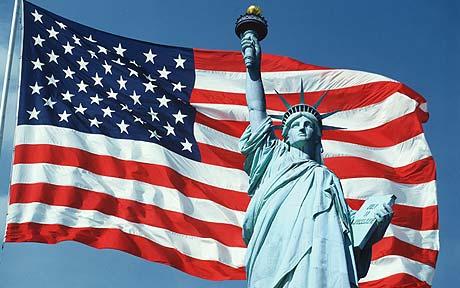
Sometimes, delusion, self-deception and outright denial can dominate the public’s psyche. As the U.S. economy stutters, unemployment refuses to budge and the 10th anniversary of September 11th looms, many Americans question or challenge the notion of the American Dream. For too many, that vision is, today, elusive or unobtainable. In compensation perhaps, America’s past successes are often exaggerated or distorted.
Realism is vital in addressing tough issues. Unfortunately, realism brings the hint, not of objectivity, but pessimism. And, in politics, optimism, no matter how far-fetched usually trumps pessimism.
Ronald Reagan’s “Morning in America” defeated Jimmy Carter in 1980 and four years later Walter Mondale. While Carter never used the term “malaise,” his pessimism, along with exceedingly high inflation and interest rates, termed the misery index, and the failed Iranian hostage raid, assured Reagan’s victory. Mondale was forthright in predicting that despite the rhetoric, Reagan would increase taxes. Reagan vehemently denied that charge; won and raised taxes nearly a dozen times during his tenure.
Realism is also important in remembering history as it was, not as we would like it. Despite the intent to perceive even past crises as halcyon days, that simply was wrong.
The reasons why the United States managed to accede to greatness weren’t because of its so-called exceptionalism, given that most countries believe in their own uniqueness. In part, America was lucky. In part it had huge resources. And, in part, its founding fathers were unique in history.
Once ballistic missiles and nuclear weapons made the United States potentially vulnerable, we collectively forgot that for nearly two centuries, two vast oceans largely insulated the country from foreign intervention and domination. Neither Europe nor Asia had that luxury.
Second, America possessed virtually unlimited resources from land and water to timber, coal, iron, oil and many precious metals. From the Louisiana Purchase on, westward expansion in which the first Americans, the Indians, were expendable obstacles created what would be a powerful economic engine of growth. Of course, great innovators and inventors from Eli Whitney, Samuel Morse and Samuel Colt to Thomas Edison and Henry Ford created great industries or the means to build them. But indigenous riches were the catalyst.
Finally, the founding fathers were indeed an extraordinary collection of men who had the brilliance and good fortune of putting in a place a political system that tolerated, if not always encouraged, this expansion. To put this in context, suppose in 1775 Barrack Obama, John Boehner, Mitch McConnell and Nancy Pelosi had been in charge. Do we think the country would have turned out as well years later?
We also downplay the crises and pessimism of the past. We talk about how Franklin Delano Roosevelt and Congress fought our way clear of the Great Depression. Yet, the economy was worse off in 1939 than it had been a decade earlier when the stock market collapsed. It took World War II and the arsenal of democracy that turned the United States into a global economic superpower.
For all the talk of the “greatest generation,” we forget that World War II was still a close run thing and that throughout the war years Americans worried and criticized the war effort and FDR. Had in June 1942, the U.S. Navy not launched its airstrikes against the Japanese fleet when it did and caught Japanese aircraft carriers in the highly vulnerable state of refueling and rearming its warplanes, sinking four flat tops in the process, who knows how the Pacific war might have gone.
In the fall of 1944, U.S. Army Gen. Dwight Eisenhower feared that the attrition of experienced officer and non-commissioned ranks and the very high number of soldiers who were absent without leave or without competent leaders could lead to a breakdown and even mutiny. And the Cold War with McCarthyism and dangerous levels of paranoiac anti-communism racked the country. Somehow this history has been erased from public perceptions today.
The United States is indeed a very fortunate country. It is the wealthiest and militarily strongest state in the world. Unfortunately, that power isn’t automatically fungible in resolving most of the problems and crises it faces. And, as long as the country fools itself by reinterpreting or forgetting the past, it is difficult to see how those same distortions can be prevented from wrongly affecting the manner in which it deals with the present and the future.
If the American Dream is to be sustained, and we shouldn’t delude ourselves believing that this is an eternally destined right, only the American people can ensure that objective. Americans must demand of their elected officials mature, objective and competent government, absent as much as possible, ideological extremes and the bitter partisanship infecting the nation. And, sadly, this might be the most extreme form of Americans dreaming.
Harlan Ullman is Senior Advisor at the Atlantic Council, Chairman of the Killowen Group that advises leaders of government and business, and a frequent advisor to NATO. This article was syndicated by UPI.
Image: usflag-460_1118303c.jpg
